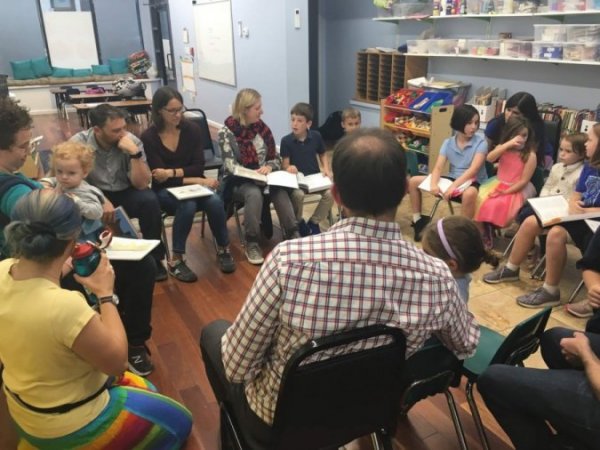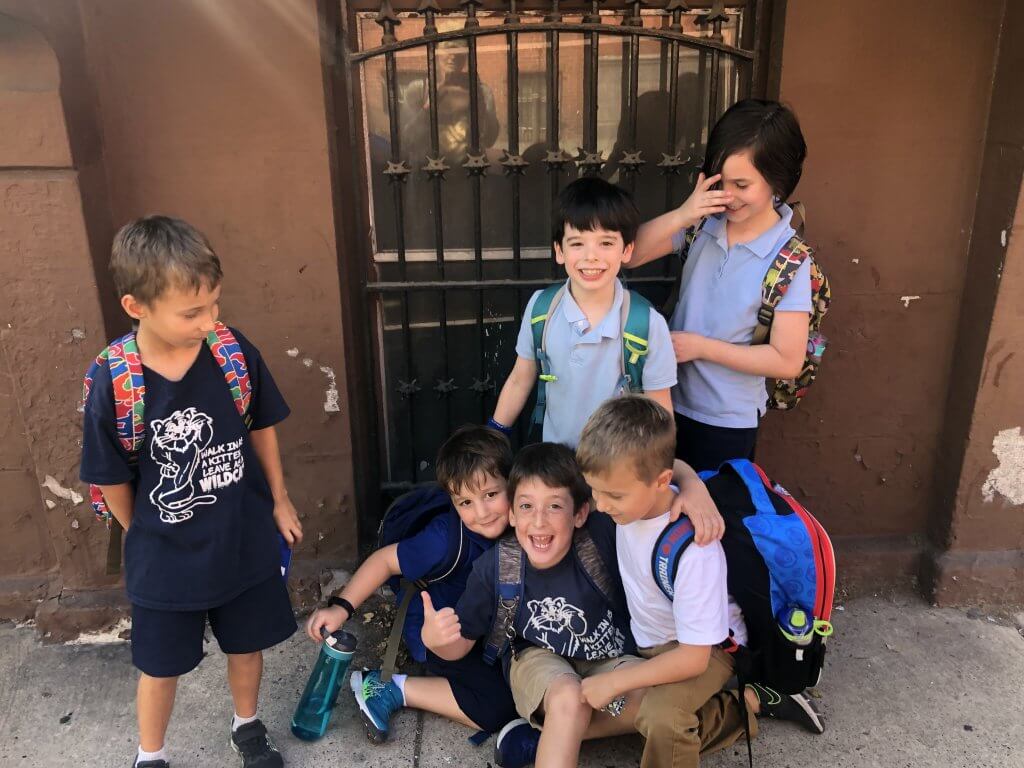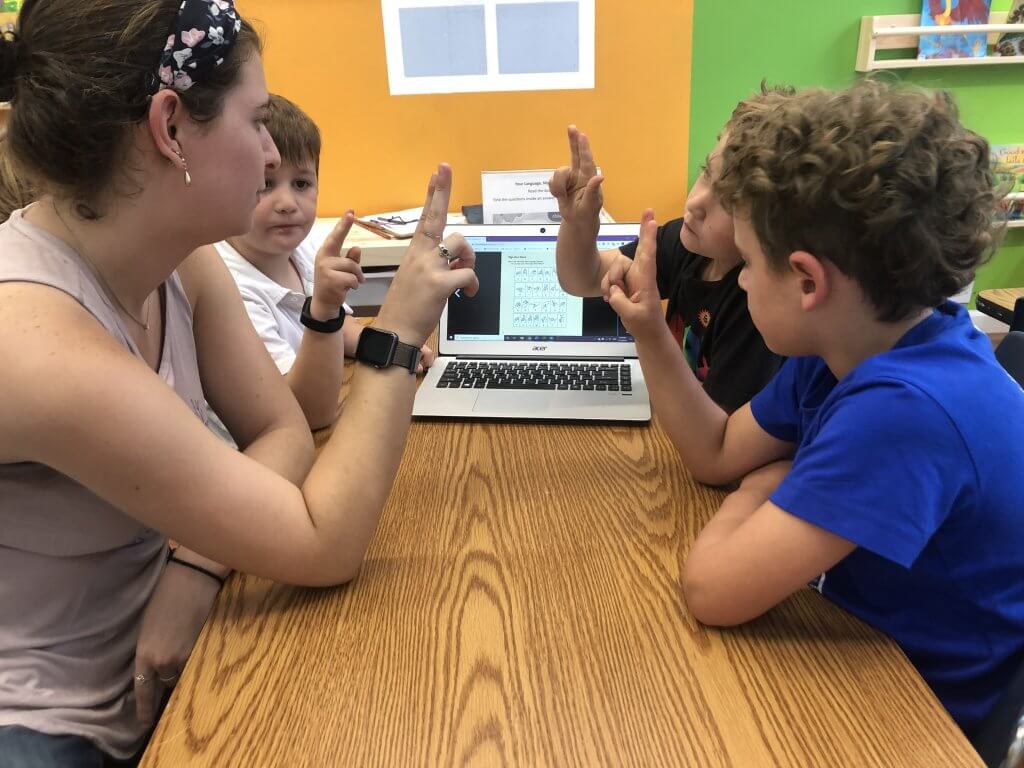
What are the benefits of different languages? What are the challenges? What’s good and helpful about people all speaking the same language? These were some of our lines of inquiry as we dove into the first verse of the Migdal Bavel (Tower of Babel) story. The story opens by asserting that “The whole earth had one language and one set of words” (Genesis 11:1). And that seemed great! The people were working together so well. Why did God want to disrupt that? We noticed that the people didn’t just speak one language, but they also spoke with one voice–we never hear from an individual in the story; there’s no diversity. Maybe that was the problem.
The garinim (Pre-K and K) reflected on the languages they know and experience. Everyone in the group speaks English, but many kiddos also know some Spanish or Hebrew and even a few signs in ASL. We reflected on what’s good about everyone speaking one language:
- Then you can say hi to each other!
- You’re able to understand each other.
- You can make friends.
- You can have playdates with everyone.

Even within a group that shares a common language, however, we noticed that not everyone shares exactly the same culture. For instance, while all the garinim kids speak English, not all of them speak only English.
The shorashim (1st graders) did the following exercise to reflect on differences in their individual cultures. Joe and Beverly read out ten statements, one at a time, and the kiddos raised their hands for each statement that was true about them:
- Love the beach
- Love amusement park rides
- Speak English at home
- Speak another language at home
- Celebrate Rosh Hashanah at home
- Celebrate Christmas at home
- Eat dinner together with your whole family every night
- Help set up or cook dinner for your family
- Fly on an airplane to visit grandparents
- Drive in a car to visit grandparents
Of the ten statements, only two of them were true for all five shorashim who were at Makom Community that day. This showed that they each bring a slightly different culture to Makom Community. Only one of them brings “10 second handstands” or “two robots, one of which is a dog.”

The nitzanim (2nd-4th graders) also had a conversation reflecting on their cultural similarities and differences:
- We both LOVE the Phillies.
- We all think the Eagles are the best team in the world.
- We all go to different schools, but we come to Makom Community after school, so we’re different during the day but we create our own culture here.

That’s the beauty of community. We don’t have to be, or even want to be, all the same. We all benefit from noticing our differences and bringing them together to create something new. Next week we’re going to address one of the difficulties that comes up when different ideas and backgrounds try to meld: misunderstandings! Stay tuned for more!
